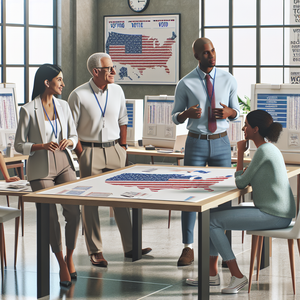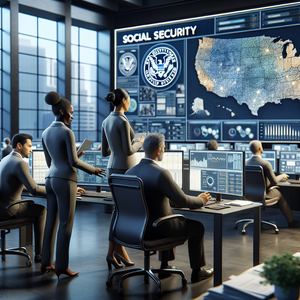
Navigating the Diverse Landscape of Election Administration: Careers That Strengthen Democracy
In today’s rapidly changing political climate, the significance of election administration has never been more pronounced. With innovations like automatic voter registration and early voting reshaping the electoral landscape, a multitude of career paths has opened up in this essential field. Each role plays a critical part in ensuring that elections are conducted smoothly, fairly, and transparently, embodying our collective commitment to a truly accessible democracy.
Job Summaries:
Election Officer:
- Imagine being the friendly face that guides voters through the electoral process on Election Day.
- Election Officers set up polling places, check in voters, issue ballots, and ensure a positive voting experience.
- Strong customer service skills and a thorough understanding of election laws are essential.
- Candidates must be at least 18 years old and complete training from local election offices.
- As the frontline facilitators of democracy, Election Officers play a pivotal role in enhancing civic engagement.
Election Data Analyst:
- In an age where data drives decisions, Election Data Analysts are the unsung heroes behind the scenes.
- They collect and analyze data related to voter turnout and polling trends, using statistical software to offer insights that shape future electoral strategies.
- Typically requiring a bachelor’s degree in data science or statistics, this role is crucial in supporting election integrity through informed, data-driven decisions.
Voter Outreach Coordinator:
- Every vote matters, and Voter Outreach Coordinators work tirelessly to ensure that every voice is heard.
- By crafting community outreach campaigns and collaborating with local organizations, they promote voter registration and participation.
- Excellent communication skills and experience in marketing or public relations can enhance effectiveness in this role, which significantly impacts voter turnout and representation.
Election Technology Specialist:
- As voting systems become increasingly sophisticated, Election Technology Specialists are essential for maintaining and operating the technology used during elections.
- They ensure that voting machines and software function seamlessly, providing crucial technical support on Election Day.
- Typically requiring a background in IT or computer science, this position is vital for ensuring secure and efficient voting processes.
Poll Supervisor:
- Stepping into a leadership role on Election Day, Poll Supervisors oversee operations at polling places.
- Managing Election Officers and ensuring compliance with legal standards.
- Strong leadership skills and a comprehensive understanding of election laws are essential for success in this role.
- Poll Supervisors are instrumental in maintaining order and fairness throughout the electoral process.
Election Compliance Officer:
- Safeguarding the electoral process, Election Compliance Officers ensure adherence to election laws at all levels.
- They conduct audits, review procedures, and investigate complaints concerning irregularities.
- Typically holding a degree in law or public policy, these officers play a proactive role in addressing potential issues, thereby preserving the integrity of elections.
Election Program Manager:
- Election Program Managers design and execute initiatives that enhance voter engagement.
- Includes registration drives and public education campaigns.
- Coordinate with various stakeholders to ensure program alignment with legal requirements and budget constraints.
- A bachelor’s or master’s degree in public administration is often preferred for this role.
- This role is vital for fostering civic participation.
Ballot Designer:
- Behind every clear and user-friendly ballot is the creativity and diligence of a Ballot Designer.
- Collaborating with election officials, they ensure that ballots are not only compliant but also accessible and easy to understand.
- A background in graphic design, along with knowledge of election laws, is essential for this impactful role that directly affects voters' experiences.
Election Security Analyst:
- In an increasingly digital world, Election Security Analysts are on the front lines, protecting electoral systems from cyber threats.
- They assess risks, implement security measures, and respond to potential breaches.
- A strong background in cybersecurity is essential for this role, which is critical for maintaining public trust in electoral outcomes.
Election Training Coordinator:
- Preparing the next generation of election officials
- Develop and deliver training programs that educate personnel on election procedures
- Create educational materials
- Conduct workshops
- Ensure that all staff are well-informed and ready to tackle their responsibilities
- A background in education or training is beneficial
- Strong communication skills are beneficial in this essential role.
By exploring the diverse roles within election administration, individuals can uncover rewarding career paths that significantly contribute to the electoral process. As the field continues to evolve, dedicated professionals have the opportunity to make a lasting impact on democracy, fostering civic engagement and public trust in our democratic systems. As you consider your future, remember that every role in this field champions the principles of fairness, accessibility, and integrity, ensuring that democracy remains vibrant and inclusive.
Explore More Jobs

